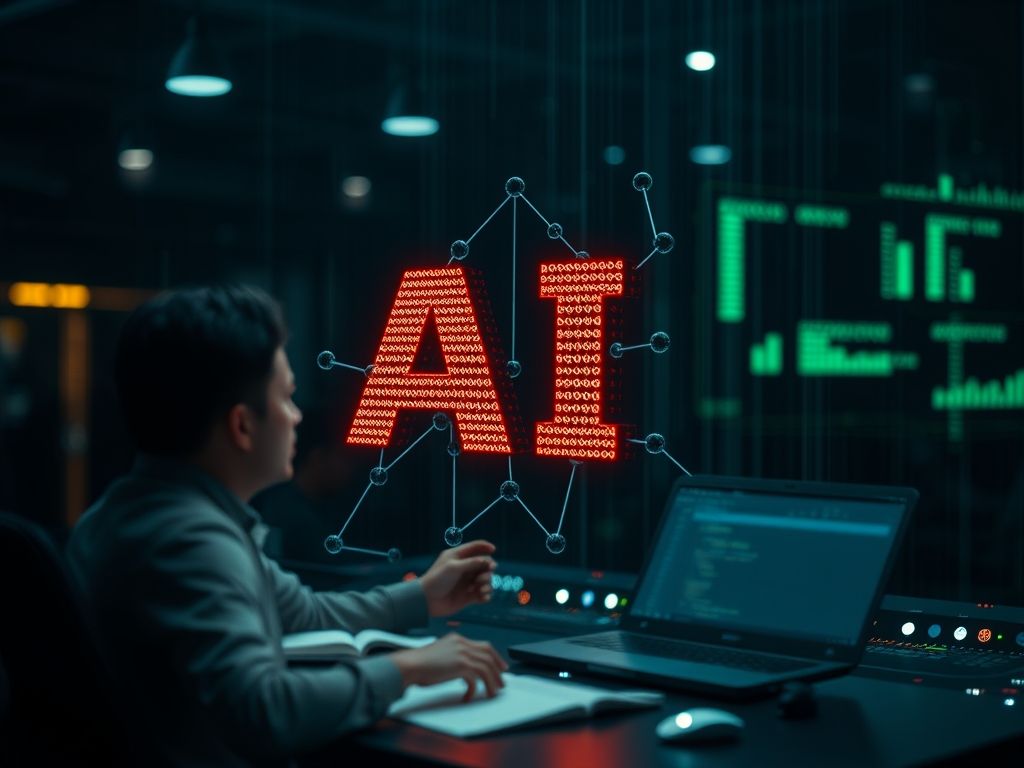Understanding AI Challenges
AI Challenges refer to the various obstacles and difficulties encountered in the development, implementation, and optimization of artificial intelligence systems. These challenges can range from technical issues, such as data quality and algorithm efficiency, to ethical considerations, including bias and transparency. As AI continues to evolve, understanding these challenges is crucial for developers, IT professionals, and businesses looking to leverage AI technologies effectively.
The Importance of Addressing AI Challenges
Artificial intelligence has the potential to revolutionize industries, but it also presents unique challenges that must be addressed to harness its full capabilities. For developers and IT administrators, recognizing these challenges not only aids in creating more robust AI solutions but also enhances user trust and ensures compliance with ethical standards.
Technical Challenges
One of the primary areas of concern in AI development involves technical challenges. These include:
- Data Quality: The success of AI systems heavily depends on the quality of data. Inaccurate, incomplete, or biased data can lead to poor model performance.
- Algorithm Efficiency: Developing algorithms that can process vast amounts of data quickly and accurately is essential. Inefficient algorithms can result in long processing times and higher costs.
- Scalability: As the amount of data grows, AI systems must be able to scale efficiently without compromising performance.
For example, a company implementing a machine learning model for customer segmentation may struggle with data quality if their input data contains errors or biases. Ensuring high-quality data collection and preprocessing is vital for the model’s success.
Ethical and Social Challenges
Beyond technical issues, AI faces significant ethical and social challenges. Some key concerns include:
- Bias and Fairness: AI systems can inadvertently perpetuate or exacerbate existing biases in society. Ensuring fairness in AI applications is critical.
- Transparency: Users need to understand how AI systems make decisions. Lack of transparency can lead to distrust and resistance to AI adoption.
- Job Displacement: The automation of tasks can lead to job losses in certain sectors, raising concerns about the future of work.
A real-world example of ethical challenges can be seen in facial recognition technology, which has faced criticism for racial bias. Developers must take proactive measures to mitigate these biases during the model training phase.
Regulatory Challenges
As AI technologies become more prevalent, regulatory challenges also arise. These include:
- Compliance with Laws: Developers must ensure their AI applications comply with existing laws and regulations, such as data protection and privacy laws.
- Dynamic Regulations: The rapid evolution of AI technology often outpaces the development of regulations, creating uncertainty for businesses.
For instance, the General Data Protection Regulation (GDPR) in Europe has significantly impacted how companies handle personal data in AI applications. Businesses must adapt their AI strategies to ensure compliance.
How to Tackle AI Challenges in Practice
Addressing AI challenges requires a multifaceted approach. Here are some practical steps that developers and IT professionals can take:
- Invest in Data Management: Implement robust data management practices to ensure data quality and integrity.
- Focus on Explainable AI: Develop AI systems that provide clear explanations for their decisions, enhancing transparency and user trust.
- Conduct Bias Audits: Regularly audit AI systems for biases and take corrective measures to mitigate them.
- Stay Informed on Regulations: Keep abreast of changes in AI regulations and ensure compliance in all projects.
By proactively addressing these challenges, developers can create AI systems that are not only effective but also ethical and trustworthy.
Practical Applications of Understanding AI Challenges
Understanding AI challenges is crucial for practical applications in various domains. Here are some examples of how this knowledge can be applied:
- Healthcare: AI can analyze medical data to assist in diagnosis, but developers must ensure the data used is representative and unbiased.
- Finance: AI algorithms for fraud detection must be transparent to build trust among users and comply with regulatory standards.
- Transportation: Autonomous vehicles rely on AI systems that must navigate complex environments while being free of biases that could compromise safety.
In these sectors, understanding and addressing AI challenges directly influences the effectiveness and acceptance of the technology.
Related Concepts
Several concepts are closely related to AI challenges that are essential for a comprehensive understanding of the topic:
- Machine Learning: A subset of AI focused on developing algorithms that learn from data. Understanding challenges in machine learning is critical for effective model training.
- Data Ethics: The study of how data should be ethically sourced, used, and managed in AI applications.
- Human-AI Collaboration: The interaction between humans and AI systems, emphasizing the importance of designing AI that complements human capabilities.
These related concepts create a broader framework for understanding the implications of AI challenges in technology.
Conclusion: Embracing AI Challenges for Future Success
AI challenges are an integral aspect of the technology landscape. By recognizing and addressing these challenges, developers and IT professionals can create AI systems that are not only efficient but also ethical and reliable. The journey towards effective AI implementation requires continuous learning and adaptation, ensuring that technology serves humanity positively. As you move forward, consider how you can apply the insights gained here to your projects, fostering a more responsible and innovative approach to AI development.
Remember, the future of AI is in our hands, and by tackling these challenges head-on, we can pave the way for a more intelligent and equitable world.









